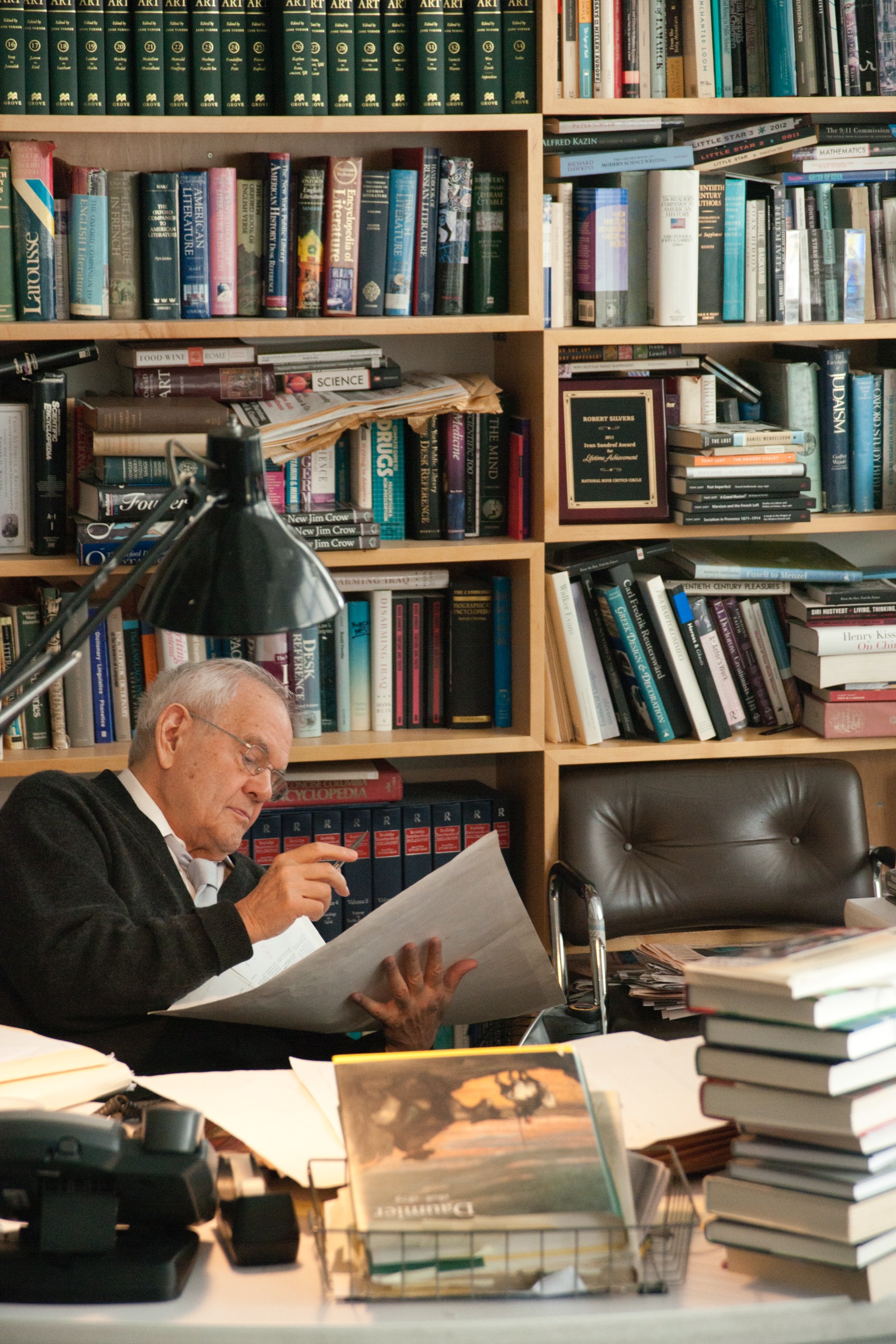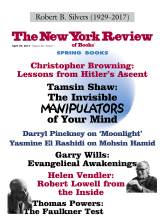“Where do things stand? Have we closed?” Days before his death, on March 20, Robert B. Silvers was doing what he had been doing every day for the past fifty-four years: thinking about, fretting over, and laboring on The New York Review of Books. On his sickbed, galley proofs were fanned out across the coverlet, photographs spilled from manila folders (“I do think it’s important to get the reporters’ raised hands inside the frame”), and a large, black, multiline telephone lay humming and blinking beneath his right hand. Even as his illness began to sap the legendary energy that had propelled him, well into his ninth decade, through fifteen-hour workdays and a social calendar that his young assistants would have found daunting, Bob would lift the receiver when the office called and declaim his favorite greeting: “Hello, hello, hello!”
The enthusiasm, bonhomie, and openness to possibility in that triple salutation were characteristic of Bob and defined his approach to editing “the paper.” Despite his immense erudition and considerable worldliness, he was never jaded; he was avid to be stimulated and educated by his writers (who would have argued that he already knew everything), and his mission, as he saw it, was to provide them with whatever resources they needed, editorial or material—from plane tickets to Saigon to boxed DVD sets of Friday Night Lights—to produce the work that, as he liked to say in the handwritten notes and rapid-fire e-mails that started to accumulate as a deadline neared, he was “very eager to see.” Eager: the adjectives that recur in an interview he gave in 2012, as the Review neared its fiftieth anniversary, belong to the vocabulary of the born enthusiast. “I admire great writers, people with marvelous and beautiful minds, and always hope they will do something special and revealing.”
If they did, it was largely because of the qualities of mind that Bob brought to his editing, the liveliness and inexhaustible curiosity tempered by a vigorously authentic taste that was unswayed by fashion and grounded in intellectual and ethical rigor. These traits, not coincidentally, were shared by his longtime companion, Grace, Countess of Dudley, who died on December 29, two days before Bob’s eighty-seventh birthday. That his death should have followed hers so swiftly comes as little surprise to those who knew the couple; nor can there be any doubt that Bob would have wanted a tribute to him to include a mention of the woman he considered the Review’s muse, at once its ideal reader—intelligent, open-minded, alert to beauty, and skeptical of phony authority, whether in politics or art—and his inspiration in life and work for over forty years.
As for the Review, it will of course go on, as he knew it would. “I can think of several people who would be marvelous editors,” Bob told his interviewer. “I think they would put out a terrific paper, but it would be different.” That’s where things stand; the long first chapter is closed. Good-bye, good-bye, good-bye.




